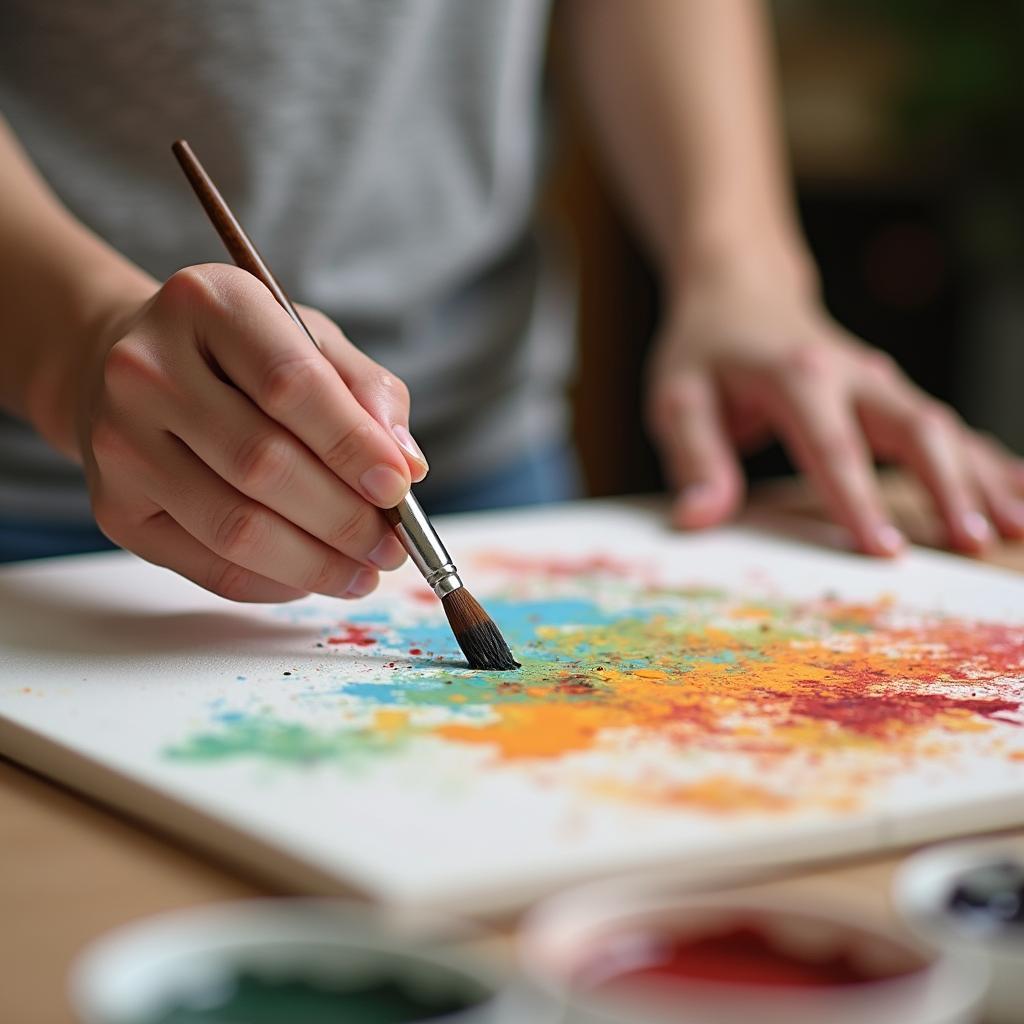The IELTS Speaking Test is designed to assess your spoken English skills. This part of the exam consists of three sections: Part 1 (Introduction and Interview), Part 2 (Long Turn), and Part 3 (Two-way Discussion). As an IELTS Speaking Examiner, I value several key aspects, including fluency, vocabulary range, grammatical accuracy, pronunciation, and the ability to develop ideas cohesively.
A common topic you may encounter involves describing a hobby you enjoy. This universal subject allows candidates to exhibit a broad range of vocabulary and detailed ideas, making it an excellent opportunity to score high.
Importance of this Topic
Describing hobbies is a frequent question in the IELTS exam because it touches on personal interests, which usually lead to more fluent and natural responses. Let’s dive into the details and explore how to craft the best responses for this topic.
Speaking Part 1: Introduction and Interview
In Part 1, the Examiner will ask general questions about you and various familiar topics. Here are some possible questions related to hobbies:
- Do you have any hobbies?
- What do you like to do in your free time?
- How often do you engage in your hobby?
- Is there a hobby you would like to take up in the future?
Sample Answer for Part 1 Question:
Question: Do you have any hobbies?
Sample Answer:
“Yes, I do. One of my favorite hobbies is painting. I picked it up when I was a child and have been passionate about it ever since. I find it incredibly relaxing and a great way to express my creativity. I usually dedicate a few hours every weekend to work on my paintings.”

Speaking Part 2: Long Turn (Cue Card)
Cue Card:
“Describe a hobby you enjoy. You should say:
- what it is
- how long you have been doing it
- why you enjoy it
- and explain what benefits you get from it.”
Sample Answer:
Sample Answer:
“One hobby I thoroughly enjoy is photography. I’ve been engaging in this hobby for about five years now. It all started when I received my first digital camera as a birthday gift. Since then, I’ve been constantly improving my skills and techniques.
I find photography incredibly fulfilling because it allows me to capture beauty in everyday moments. Whether it’s a stunning landscape or a simple candid shot of a friend, photography enables me to preserve memories. What I enjoy most is the creative freedom it provides; I can experiment with different angles, lighting, and subjects.
Moreover, photography offers numerous benefits. It encourages me to explore new places, enhancing my appreciation for nature and culture. Additionally, editing photos helps me develop my computer skills, which are useful in many areas of life. Overall, this hobby brings joy and adds depth to my experiences.”
Possible Follow-up Questions:
- Do you think hobbies are important for people’s mental health?
- How has your hobby influenced other areas of your life?
- Do you prefer hobbies that are solitary or social activities?
Sample Answer:
“Hobbies are undoubtedly important for mental health because they provide an outlet for stress and allow people to pursue passions outside of work or studies. For myself, engaging in photography has taught me patience and attention to detail, which I believe are essential skills in both personal and professional contexts.”
Speaking Part 3: Two-way Discussion
In Part 3, the Examiner will ask more abstract questions related to the topic discussed in Part 2. This is to assess your ability to express opinions and justify them with reasoning.
Possible Questions:
- How do hobbies contribute to a person’s overall well-being?
- What are some hobbies that are popular in your country?
- Do you think the hobbies people engage in today are different from those of the past? Why?
Sample Answer:
“Hobbies significantly contribute to a person’s well-being by offering a break from routine and reducing stress levels. They also foster a sense of accomplishment and can enhance social connections if the hobby involves group activities.
In terms of popular hobbies in my country, many people enjoy outdoor activities like hiking and cycling, which promote physical health. On the other hand, digital advancements have also made video gaming and blogging popular amongst the younger generation.
Comparing today’s hobbies with those of the past, it’s evident that technology has played a significant role in transforming interests. For instance, while stamp collecting was a common hobby in the past, today’s youth might be more inclined toward activities like coding or content creation for social media platforms.”
Vocabulary and Structures for a High Score
Essential Vocabulary:
- Engage in: (v) /ɪnˈɡeɪdʒ ɪn/ – to participate or become involved in.
- Fulfill: (v) /fʊlˈfɪl/ – to satisfy or meet a need.
- Creative freedom: (n) /kriˈeɪtɪv ˈfriːdəm/ – the liberty to express oneself artistically without restrictions.
- Candid: (adj) /ˈkændɪd/ – truthful and straightforward.
- Appreciation: (n) /əˌpriː.ʃiˈeɪ.ʃən/ – recognition and enjoyment of something’s good qualities.
Example Sentences:
- “I enjoy painting because it allows me to engage in a creative and fulfilling activity.”
- “Photography gives me creative freedom to capture different perspectives.”
- “Through my hobby, I’ve developed an appreciation for the intricate details of nature.”
Examiner’s Advice for Practice
To excel in the IELTS Speaking test:
- Practice regularly: Speaking English daily can improve your fluency.
- Expand your vocabulary: Learn and use new words in context.
- Record yourself: Listen to your responses to understand areas that need improvement.
- Engage in discussions: Join English-speaking groups or forums to enhance your conversational skills.
- Stay relaxed: Being calm helps deliver clearer and more coherent responses.
Remember, achieving a high band score in the IELTS Speaking test requires practice, a wide range of vocabulary, and the ability to express ideas clearly and confidently. Happy practicing!